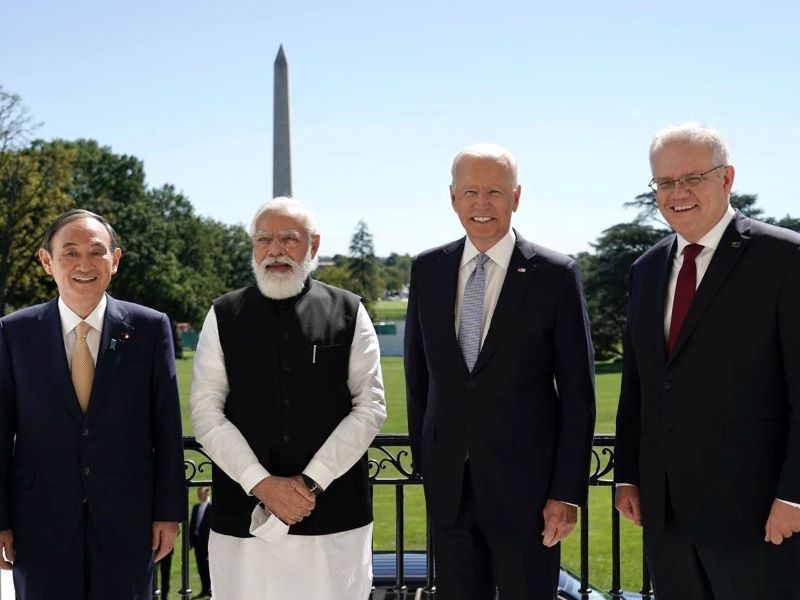The Australian government has agreed to map the supply chains of critical technologies and materials, including semiconductors, as part of an agreement with fellow Quad nations on technology development, governance and use.
5G, artificial intelligence, cybersecurity and space access were also highlighted as areas of cooperation in the first in-person meeting by leaders of the Quad countries, Australia, the US, India and Japan.
“We are mapping the supply chain of critical technologies and materials, including semiconductors, and affirm our positive commitment to resilient, diverse, and secure supply chains of critical technologies, recognising the importance of government support measures and policies that are transparent and market-oriented,” a joint statement from the countries leaders released late Friday said.

It follows calls from within Australia to diversify its role beyond resource supply in technology supply chains, for both economic and strategic reasons, as demand for the critical minerals used in batteries and computer components surges while refinement and production is largely confined to Asia.
A White House fact sheet on the proposal said the focus will be on semiconductors and their supply chain, with the initiative to map capacity, identify vulnerabilities, and bolster supply-chain security.
The supply chain mapping is part of formal cooperation by the four countries on critical and emerging technologies to “ensure the way in which technology is designed, developed, governed, and used is shaped by our shared values and respect for universal human rights”.
At the meeting, the group launched the Quad Principles on Technology Design, Development, Governance, and Use.
The principles affirm that technology should be shaped by democratic values and respect for human rights.
“Technology should make the lives of our citizens more secure, prosperous, and rewarding, addressing some of the world’s greatest shared challenges, like equitable growth, climate change, energy security, and pandemic diseases,” the principles say.
At the meeting, leaders also committed to secure, open, and transparent 5G and “beyond-5G” networks through the promotion of innovation and “trustworthy vendors”.
“Acknowledging the role of governments in fostering an enabling environment for 5G diversification, we will work together to facilitate public-private cooperation and demonstrate in 2022 the scalability and cybersecurity of open, standards-based technology,” the joint statement of prime minister Scott Morrison, US president Joe Biden, India’s prime minister Narendra Modi, and Japan’s prime minister Yoshihide Suga said.
Sector specific Quad contact groups will be established for advanced communications and artificial intelligence to help develop standards and conduct pre-standardisation research.
A Quad senior cyber group will also be stablished with experts to meet regularly to improve adoption and implementation of shared cyber standards; software; building workforces; and promote the “scalability and cybersecurity of secure and trustworthy digital infrastructure”.
Space is also a focus for the four countries, which agreed to share earth observation satellite data and analysis on climate-change risks and the sustainable use of oceans and marine resources.
Space manufacturing capacity is also an area Quad nations want to see more diversity, agreeing to work on more capacity-building in space-related domains in other Indo-Pacific countries.
The Quad group also agreed to consult each other on norms, guidelines, principles, and rules for the outer space environment.
A Quad Fellowship was also announced, with countries and private companies to fund 100 graduate fellowships to leading science, technology, engineering, and mathematics graduate students.
Do you know more? Contact James Riley via Email.

